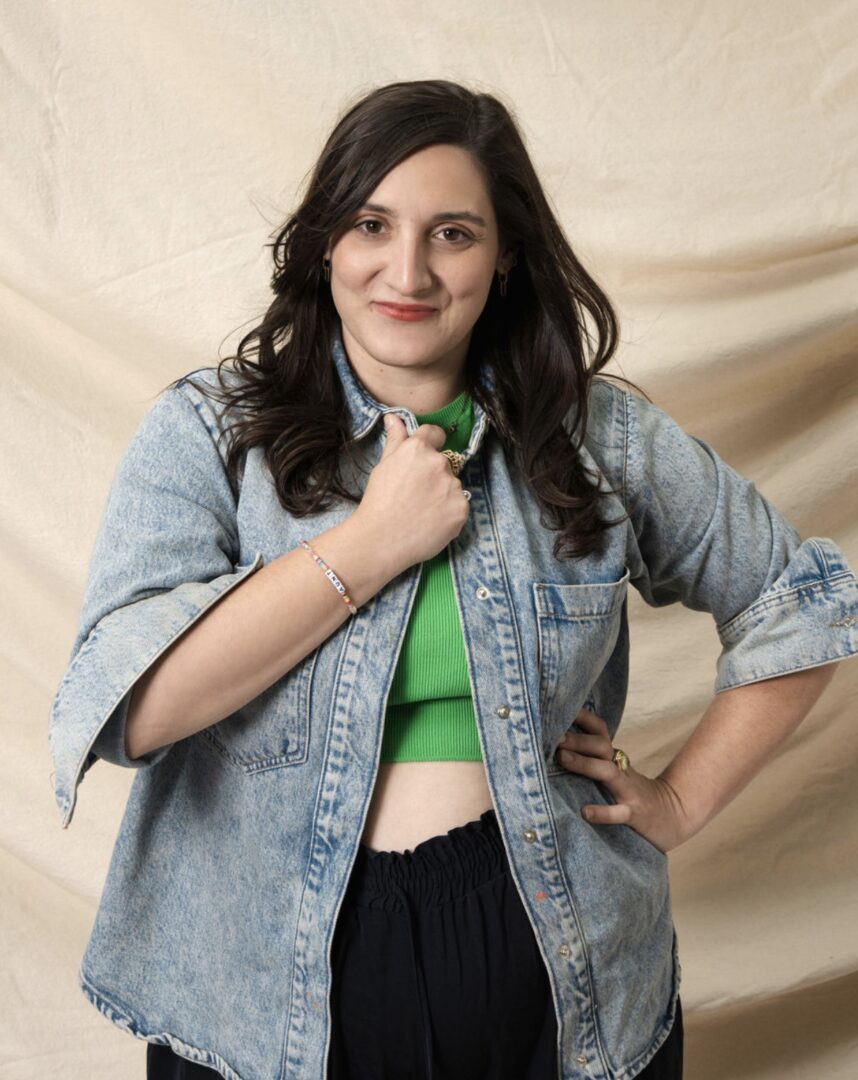We were lucky to catch up with Melissa Fulgieri recently and have shared our conversation below.
Melissa, thanks so much for taking the time to share your insights and lessons with us today. We’re particularly interested in hearing about how you became such a resilient person. Where do you get your resilience from?
I had several experiences with grief and loss in childhood that I went through much earlier than a lot of my peers. Watching several of my caregivers manage prolonged illnesses and eventually pass away in my 20s is something that many of us go through, just much later on in life. My curiosity has always been a strong protective factor of mine. Instead of simply accepting things as they are, I often ask why. I drill deep into understanding my emotions and I was quite confrontational about them, even as a young child. I once found an old journal of mine where I outlined a fight that my parents had with my older sister. I had basically written out a behavior pattern that I now teach graduate students in family therapy class. Even as a young child, I didn’t only want to confront my own emotions, I wanted to understand how others’ emotions impacted the meaning they assigned to others and subsequently how they behaved. I suppose I always had a strong understanding of the interconnectedness of others and the humanity in each individual, even when their behaviors are less than favorable. I think we all want to feel some level of belonging, some level of purpose and like our life and what we choose to do in it matters. That’s a hard mountain to climb for many of us and it can make us do things that take us farther away from our center. Being confronted with grief and loss so early on, and seeing those same emotions reflected back in my family members that were older than me helped me understand the idea of a collective unconscious – that we all go through similar pains about identity, purpose and togetherness. It made me not sweat the small stuff as much and notice the beauty around me.
I also think that resilience is largely understood. We often look at someone who has gone through a lot as being strong. I know I’ve been called that more times than I can count. In reality, resilience is sometimes the only thing that’s on the menu. When we face life hardships, truly the only way to go on is to go through them. Sometimes that requires a whole host of ways to cope whether it is distracting ourselves, numbing out, confront, crying to our friends, etc. In this way, we are all resilient because we are all coping with something.
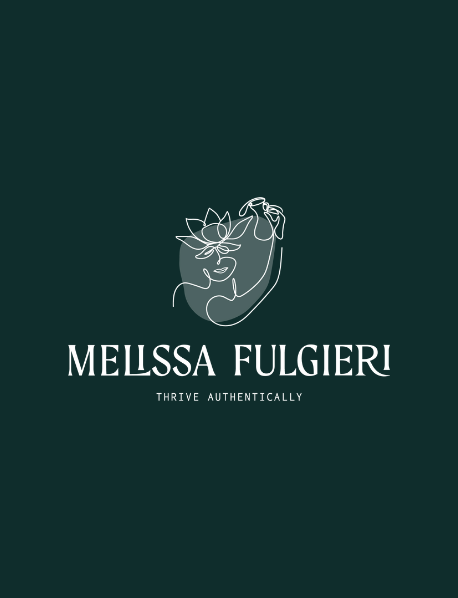
Let’s take a small detour – maybe you can share a bit about yourself before we dive back into some of the other questions we had for you?
I just wrote my second book, which I’m very proud of. It outlines how our childhood impacts our adult intimate relationships. It’s called Healing Relational Trauma: Move Beyond Painful Childhood Experiences to Deepen Self Understanding and Build Authentic Relationships. I wrote it because I was noticing that so many people in my private practice and subsequent clinical work were operating in their adult relationships with wounds from the past, but hadn’t been given the space to acknowledge this because they didn’t quite meet the criteria for PTSD and didn’t resonate with calling their experiences trauma.
I see a lot of millennials who didn’t get many of their emotional needs growing up, which makes sense. Parenting is often imperfect and we only recently have recognized how mental health impacts parenting. This has left us with a whole host of adults who aren’t as conversant in naming and acknowledging their emotions and recognizing how their emotions impact their relational behaviors with those they love. I wanted to write something relatively short and approachable that acted as an on ramp for people who didn’t know where to start. It helps people understand that the most important relationship they can build is with themselves and that this will set the stage for all subsequent relationships.
When I’m not writing books, I have a private practice where I see individual adults and couples who are struggling with depression, anxiety, relationship issues and identity. Many of my clients felt unseen growing up and are now doing the brave and confronting work on getting in touch with their deepest selves to reparent themselves and live fulfilling and satisfying lives. I also teach at Fordham and Long Island University because I love providing support to brand new social workers. Social work is an extremely rewarding but difficult career so I find a lot of purpose in helping the newest in the field make a good start.
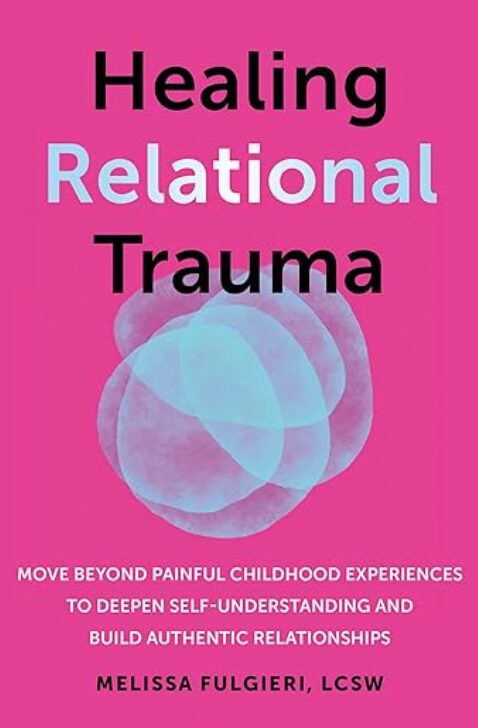
There is so much advice out there about all the different skills and qualities folks need to develop in order to succeed in today’s highly competitive environment and often it can feel overwhelming. So, if we had to break it down to just the three that matter most, which three skills or qualities would you focus on?
Flexibility is a great skill in my work. I mean that in a few different ways. Firstly, I have made many pivots in my career in the past 15 years when I grew to feel tired of the work I was doing or like I wasn’t learning or pushing myself enough. One of the reasons why I love this career is that you can really do some much with the degree. I also find flexibility in my ways of thinking. Science has a way of being quite over confident with what we know, but when you zoom out and see the advances of science, we notice how ways we believed things were is extremely different to today. I remember early on in my career, operating from more intensive models, I often felt like if a client wasn’t doing or saying something in the way I had been taught, it wasn’t right or that was the thing that was making the relationship go off course. I’ve loosened up a lot which has allowed me to be quite open and allow the clients I see to direct their own lives, with me in the passengers seat, pointing things out along the way.
Humility is a very important business skill for me because I recognize that there are so many things about my business and my work that I don’t know and I truly see myself as a lifelong learner. I cannot tell you about many people I have tapped for counsel throughout my career, either because they have figured out an ingenious solution to a problem I’ve having or simply because I admire them and would like to emulate a part of the way they work or something they have built into their careers. I am very grateful that I feel deeply that there is always more to learn because I know that will continue to keep things interesting.
Audacity is another skill I have that has served me well in my journey. I once read that Mindy Kaling said she was raised with the confidence of a mediocre white man and I always loved that because I think there are so many people out there who take up space in the world because of the privileges that they have. This is very different than whether or not they are entitled to that privilege but it never ceases to amaze me how good we can be at being our own worst enemy or naysayer. I am proud that I often push against that and say yes to things, like writing two books, or being a professor, or opening up my own business, or giving a workshop, that really rests on confidence that I will figure it out, that I have something to offer, and that I can take up space in a meaningful way. I appreciate that I can hold both fear and self-doubt but push past that fear enough to stretch myself and my abilities.
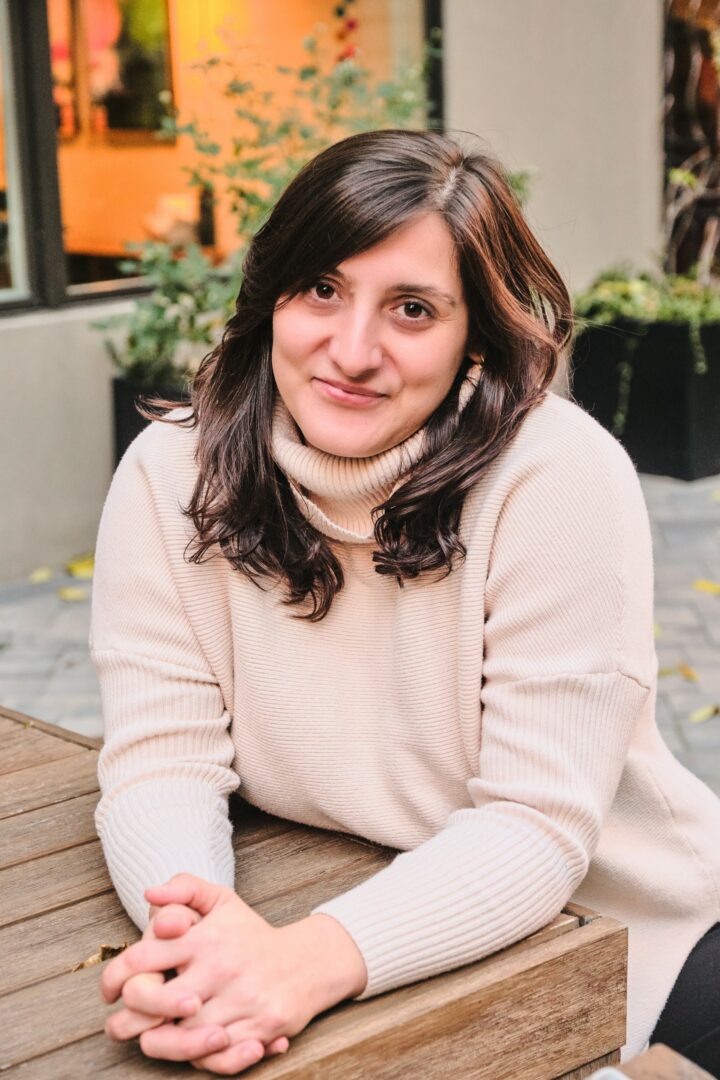
How can folks who want to work with you connect?
I am always looking for other creatives, deep thinkers and feelers and other mental health and wellness folks to partner with. Whether it be for a workshop, speaking engagement, group, performance or community support, I love to work with smart and sensitive people who want to purposeful, meaning driven work. I love working with others in helping and creative professions, as I believe that interdisciplinary collaboration creates diverse and interesting projects.
Contact Info:
- Website: https://www.melissafulgieri.com
- Instagram: melissafulgierillc
- Linkedin: https://www.linkedin.com/in/melissa-fulgieri-lcsw-76573a12/
- Other: Substack: https://malg182.substack.com
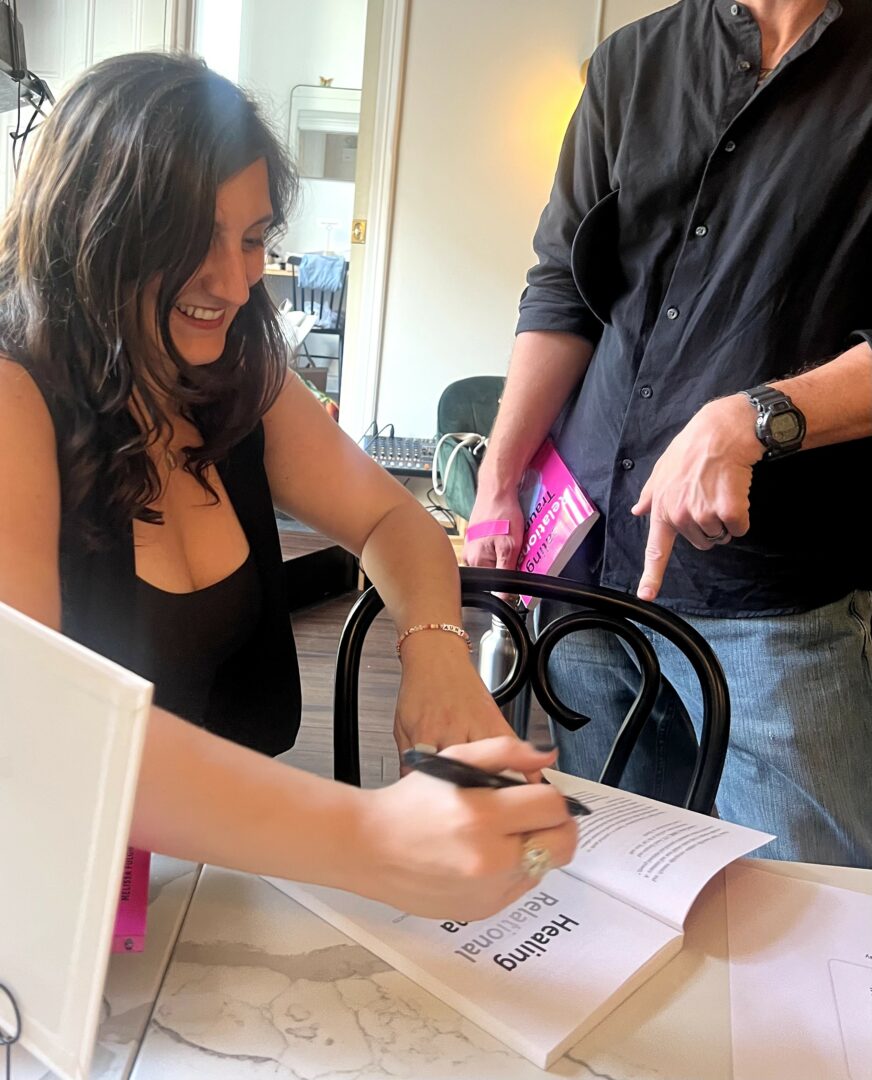
Image Credits
Hatnim Lee, photo of me in the white shirt
Lydia Hudgens, Full body headshot
so if you or someone you know deserves recognition please let us know here.

